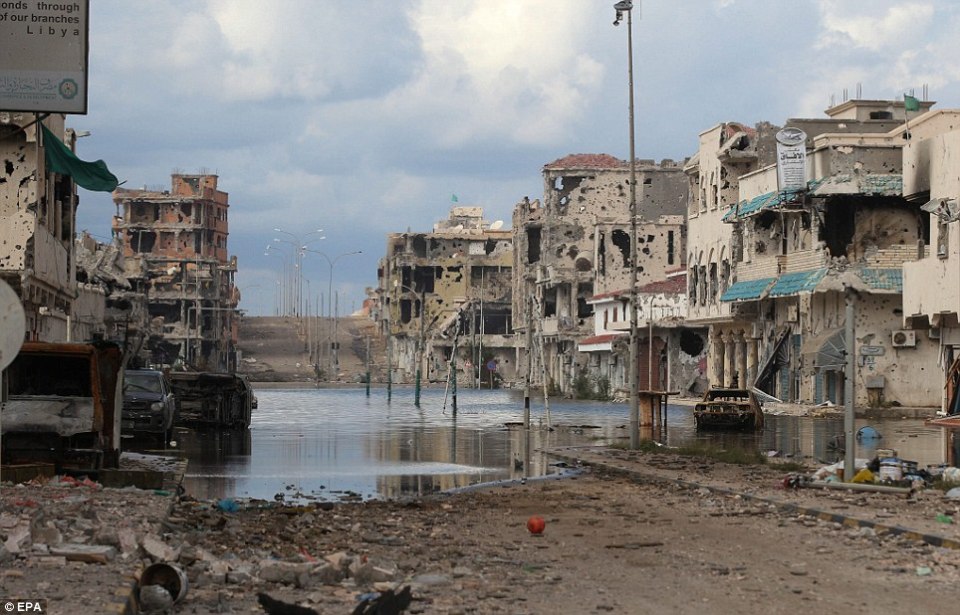Apr 13
20151
350.org / 1Sky, Non-Profit Industrial Complex
Bill McKibben Capitalism EcoSystem Service Market Environmental Markets Imperialism John Bellamy Foster Naomi Klein Racism Renewable Energy
Fetishisms of Apocalypse
September 20, 2014
Climate change and other environmental campaigns often try to mobilize people around the idea of avoiding apocalypse. This short piece for Occupied Times explores some of the weaknesses of this approach.
To anybody who has ever gone around Europe or North America giving talks or workshops on environmental politics, the scene will be familiar. At some stage a person sitting in the front row will stand up to wonder aloud what the point of the discussion is given that the world is going to hell so fast. A list of terrifying trends will then be laid out. At least three “planetary boundaries” out of nine have already been breached. Humanity now appropriates between 20 and 40 per cent of nature’s net primary production. The proportion of atmospheric carbon dioxide is now higher than it was 10 or 15 million years ago, when sea levels were 100 feet above current levels. If temperatures continue to rise and release even a small amount of the carbon still locked up in the soils and ocean bottoms of the Arctic, we’re fucked. If any doubt remains about whether apocalypse is really on the way, just look at all those crashed civilisations of the past (Easter Island and the Maya are regularly invoked) who also failed to pay attention to “ecological limits”.
The tone of the recital is that of a grim call to order. Those present have just not been registering the facts, and clearly the volume has to be turned up. Why sit around sharing experiences of financialisation, environmental racism, or the enclosure of commons when climate change is about to fry all of us? There’s no time for social transformation. Ruling elites have to be persuaded to act in their own interest now. So obvious is all this to the person in the front row that at this point they may just get up and leave – not so much in protest at the triviality of the proceedings nor out of conscious disrespect for the other participants as from a sense that now that the people present have been alerted to the situation, it’s time to take the message elsewhere.
In a meeting of the kind I describe, the front-row apocalyptician will probably get a respectful hearing. This is a person, after all, in possession of an impressive body of research and statistics – and who is more than justified in insisting that the status quo is untenable. Yet one or two things are likely, rightly, to raise a tremor of unease among those present.
One is the implicit dismissal of class politics. The apocalyptician’s reasoning is as follows. We’re talking about a catastrophe that could kill everybody and everything. Who could have an interest in bringing that on? No need now for the Marxist project of trying to understand how capital accumulation continually recreates human interest in destruction, because, ex hypothesi, no one could ever want destruction to that extent. Catastrophic climate change makes distinctions between hotel room cleaners and hedge fund managers irrelevant. “People” become the universal political subject. Climate politics moves out of the realm of, say, class struggle between workers in Chicago and the financiers of energy projects that pollute their neighbourhoods, or between indigenous bands in the Amazon and the oil companies despoiling their territories. Instead, it becomes – to quote the words of US climate movement guru Bill McKibben – a battle in which generic “human beings” collectively learn to submit to the Great Other of “physics and chemistry”.
For the apocalyptician, the spectre of universal catastrophe may look like a good way of rallying a middle class who may not directly suffer from the impact of fossil-fuelled globalisation. But for many listeners, to flatten out existing social conflict in this way feels disempowering. If the threat of global collapse is supposed to spur us all toward concerted action, why does it seem instead to paralyse the political imagination, spook ordinary people into putting their rebellious instincts on ice, and deaden discussion among different social movements about the lessons of their struggles? Why does it lead so easily to despair or indifference – or even to a sort of sado-masochistic or death-wishy pleasure in the pornography of doom? And why do the remedies proposed – “we need a crash programme to keep atmospheric concentrations of CO2 equivalent below 350 parts per million” – sound so parochial?
Indeed, instead of unifying political struggles, apocalyptic obsessions often seem to shrink transformative politics to the vanishing point. Slavoj Zizek has remarked that whereas it is precisely out of struggles against particular forms of oppression that “a properly universal dimension explodes … and is directly experienced as universal”, “post-political” campaigns against abstractions like “CO2” suffocate movement expansion because they close off possibilities for people to see their own strivings as a “metaphoric condensation” of global class struggles.
***
Yet isn’t the deeper problem with the appeal to apocalypse not that it is “apolitical”, but that it is all too political in a pernicious way? Not that it is “disempowering”, but that it is all too empowering of the technocratic and privileged classes?
Take climate apocalypse stories, which are currently reinforcing the old capitalist trick of splitting the world into discrete, undifferentiated monoliths called Society and Nature at precisely a time when cutting-edge work on the left – often taking its cue from indigenous peoples’, peasants’ and commoners’ movements – is moving to undermine this dualism. On the apocalyptic view, a fatally-unbalanced Nature is externalised into what Neil Smith called a “super-determinant of our social fate,” forcing a wholly separate Society to homogenise itself around elite managers and their technological and organisational fixes.
By “disappearing” entire peoples and their adaptations, this manoeuvre merely applies to the past the tendency of apocalypticism to hide the complexities of current conflicts involving imperialism, racism and capitalism.Thus disaster movies – not to mention the disaster stories broadcast on the news every evening – are not produced just to feed our sneaking joy in mayhem. They also present narratives of technocratically-minded stars responding on our behalf to “external” threats in which they are portrayed as having played little part. Books like Collapse by Jared Diamond, meanwhile, replace complicated political stories of long-term survival, struggle, and creative renewal among civilisations like those of the Easter Islanders or the Maya with fables of apocalypse and extinction in which one non-European society after another supposedly wipes itself out through its rulers’ failure to “manage” the Menace from Nature. By “disappearing” entire peoples and their adaptations, this manoeuvre merely applies to the past the tendency of apocalypticism to hide the complexities of current conflicts involving imperialism, racism and capitalism.
The expert Intergovernmental Panel on Climate Change (IPCC) follows the same procedure, avoiding collective inquiry into the ins and outs of capital accumulation in favour of a simplistic narrative pitting Society against a Nature consisting of greenhouse gas molecules. Except that unlike the apocalyptician visiting the activist meeting, who chooses to get up and leave after speaking, the IPCC is actually statutorily required to “present the global warming science” as if it contained a politics-free message from Nature itself, requiring no discussion, and then get up and walk out in order to allow the sanitised missive to sink into Society (a.k.a. the delegates to the UN Framework Convention on Climate Change).
Although they can hardly be accused of drawing back from analysing the dynamics of capital, some flavour of this approach lingers on even among some thinkers on the left such as John Bellamy Foster and Naomi Klein, who, contemplating apocalypse, are tempted to fall back on creaking Cartesian slogans according to which not only does Capitalism act on a wholly separate Nature (“Capitalism’s War on the Earth”), but Nature itself somehow acquires that long-coveted ability to overthrow Capitalism (“This Changes Everything: Capitalism vs. the Climate”).
***
Apocalypse stories are always about rule. Every community, perhaps, recounts its own apocalypses, paired with its own ideals of elite or revolutionary response. St. John’s biblical apocalypse found its answer in God’s infinite love. In early capitalist England, the threatened apocalypse of rebellion on the part of an emerging, uprooted proletariat was countered by, among other things, a new discipline of abstract Newtonian time that promised to keep everyone in line. Marxist visions of capitalist apocalypse are typically matched with projections of political redemption through revolution. Southeast Asian millenarianists gambled on a moral cleansing of the worldly order, as do some survivalists in the contemporary US, where doomsday religious rhetoric has often gone hand in hand
with rampant extractivism and free-market ideology.
The prototype modern apocalypse story is perhaps that of Malthus, with his 1798 vision of uncontrollably breeding hordes whose ravening after land would “sink the whole world in universal night”. Helping justify the Poor Law Amendment Act of 1834, Malthus’s tale also energised murderous 19th-century famine policies in British India, powered Garrett Hardin’s 20th-century polemics against commons and communism and serves as an unacknowledged foundation for countless World Bank economic reports and research projects in biology and “natural resource management”. Finding an echo in Enoch Powell’s “rivers of blood” apocalypse speech, it also haunts the immigration policies of UKIP and other British political parties.
Of equally enduring influence has been the slow-motion apocalypse prefigured by 19thcentury
thermodynamics: heat death, when capital can extract no more work from the universe, all the lights go out, and the machines rumble to a halt. While this particular catastrophe story has ceased to be the object of the obsessive brooding that it was among North Atlantic intellectual classes in the 1800s, it too remains active today, hovering ghostlike in the background of every post-Taylorian drive to sweat labour and other resources, as well as every energy-saving programme or excited politician’s appeal to the “white heat of technology” or “increased efficiency for national competitiveness”.
Al Gore’s famous documentary An Inconvenient Truth heightened viewers’ anxiety about global warming by enjoining them to think of themselves as frogs being slowly boiled alive, only to climax with a paean to capitalist competition and the “renewable resource” of US “political will”. In the global warming debate as well, apocalypse has come to be invoked mainly to tell us what will happen if we don’t adopt innovative business practices. Al Gore’s famous documentary An Inconvenient Truth heightened viewers’ anxiety about global warming by enjoining them to think of themselves as frogs being slowly boiled alive, only to climax with a paean to capitalist competition and the “renewable resource” of US “political will”. In Carbon, an August 2014 climate campaign video from the Leonardo di Caprio Foundation, cartoons of a rampaging, Transformer-like “fossil fuel robot” without a human face stomping around the planet laying waste to all living things alternate with interviews with bland, besuited North American and European technocrats and politicians drawling about carbon prices as the solution to all our climate problems. Which half of this composite vision is the more terrifying is, for me, an open question.
Justice Matters – Larry Lohmann
Published on Mar 13, 2015
https://www.youtube.com/watch?v=8hMmr4rgMWk









by Damir Mirkovic